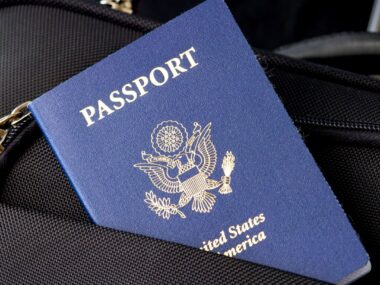Germany is one of the best countries in Europe for skilled immigrants. It offers high salaries, free or affordable healthcare, world-class infrastructure, and a strong economy. If you are dreaming of moving to Germany, working there, and possibly settling down permanently, this guide will help you understand how visa sponsorship works in Germany, what jobs are in demand, and how to start your immigration journey in 2025.
Why Move to Germany?
Before diving into visa types and sponsorship, let’s look at why Germany is so popular with international job seekers:
- High-paying jobs, especially in tech, healthcare, and engineering
- Strong workers’ rights and job security
- Pathway to permanent residency and citizenship
- Free education for your children
- English-speaking opportunities in international companies
- Safe and clean environment
Whether you’re a nurse from Nigeria, a software developer from India, or a construction worker from the Philippines, Germany offers a structured path for immigrants to work and settle.
What Is a Visa Sponsorship Job in Germany?
Visa sponsorship means a company in Germany is ready to hire you from another country and will help you get a work visa so you can legally enter and work in Germany.
This is most common for jobs that require special skills or are in high demand, like:
- Software Engineering
- Nursing and Elder Care
- Mechanical and Electrical Engineering
- Truck Driving and Logistics
- IT and Cybersecurity
- Hotel and Restaurant Staff
- Construction Workers
- Researchers and Scientists
When a German employer sponsors you, they provide formal documents to help you apply for a long-term work visa or Blue Card.
Step 1: Know the Right Visa Types
Germany offers several work visa types. Here’s a quick guide to help you understand which one may be right for you.
1. Germany Job Seeker Visa
- For qualified professionals who want to enter Germany and look for a job
- Valid for 6 months
- No job offer needed before applying
- You must prove qualifications, funds, and health insurance
2. Germany Work Visa
- For foreign workers with a valid job offer from a German employer
- You must meet qualification and salary requirements
- Employer provides sponsorship letter
3. EU Blue Card
- For highly skilled workers with university degrees
- Must have a job offer with a salary of at least €45,300 (in 2025 estimate; reduced to €39,682 in shortage professions)
- Fast path to permanent residency
4. Skilled Workers Immigration Act Visa
- Introduced in 2020 and improved in 2023
- Eases visa rules for people with vocational qualifications, not just university degrees
- Great for nurses, drivers, electricians, welders, plumbers, etc.
Step 2: Find High-Demand Jobs That Offer Sponsorship
Germany is facing a labor shortage in several fields. That’s why companies are hiring foreign workers and are ready to help with visa sponsorship.
In-Demand Jobs in 2025:
| Industry | Roles | Estimated Annual Salary (Gross) |
|---|---|---|
| IT & Software | Developers, IT Support, Cloud Engineers | €55,000 – €90,000 |
| Healthcare | Nurses, Elder Care Staff, Radiologists | €38,000 – €60,000 |
| Engineering | Mechanical, Electrical, Civil Engineers | €50,000 – €85,000 |
| Logistics | Truck Drivers, Forklift Operators | €30,000 – €45,000 |
| Hospitality | Cooks, Waiters, Hotel Receptionists | €25,000 – €40,000 |
| Construction | Bricklayers, Plumbers, Welders | €35,000 – €55,000 |
Tip: Employers in shortage professions are more likely to sponsor your visa quickly.
Step 3: Search for Jobs That Offer Visa Sponsorship
Here are some trusted platforms where you can find visa-sponsored jobs in Germany:
Top Job Portals:
- Make it in Germany (https://www.make-it-in-germany.com)
- Jobbörse (Federal Employment Agency) – https://jobboerse.arbeitsagentur.de
- StepStone.de
- LinkedIn Jobs (filter by location & sponsorship)
- Indeed Germany
- Workwide.de – Jobs in Germany for international candidates
Search tips:
- Use keywords like “visa sponsorship”, “English-speaking”, or “international applicants welcome”
- Filter by location, salary, and job type
Step 4: Prepare a German-Style CV and Cover Letter
Your application should meet German job market standards. Many employers reject applications simply because the format is unfamiliar.
Your CV Must Include:
- Professional photo (passport-style)
- Personal information: Name, address, contact, nationality
- Short personal profile
- Work experience (most recent first)
- Education and certifications
- Language and tech skills
- References (if any)
Cover Letter Tips:
- Write in English or German, depending on job post
- Explain why you want the job and how you fit
- Mention that you are open to relocation and visa sponsorship
Step 5: Apply, Follow Up, and Prepare for Interviews
Apply to multiple jobs
Don’t stop at one or two applications. Aim for 10–20 targeted applications per week.
Follow up after 1–2 weeks
If you don’t hear back, it’s okay to politely email the HR department and ask for an update.
Interview Prep:
- Most first interviews are done online via Zoom or Teams
- Practice answering questions about your experience, skills, and visa status
- Be clear and confident when talking about why you want to work in Germany
Step 6: When to Discuss Visa Sponsorship
You should not mention visa sponsorship in your very first contact unless the job ad requires it.
Instead:
- Apply normally
- If you’re invited to interview or get shortlisted, politely ask:
“I’m currently based outside the EU and would require a visa to work in Germany. I’m ready to provide all documents needed and assist with the process. Would your company be open to supporting a work visa application?”
Many German employers are already familiar with this process and have HR teams who manage visa sponsorships regularly.
Step 7: How to Apply for the German Work Visa
Once you get a job offer, your employer will give you the necessary documents to start the visa process.
Documents Required:
- Valid passport
- Signed employment contract
- Approval from Federal Employment Agency (if needed)
- Proof of qualifications (translated if not in English/German)
- CV and motivation letter
- Proof of accommodation in Germany
- Health insurance
- Visa application form
- Visa fee (~€75–€100)
Where to Apply:
- Visit the German embassy or consulate in your home country
- Book an appointment for the visa application
- Wait 4–12 weeks for processing (can vary)
Step 8: Move to Germany and Register
After your visa is approved, you can travel to Germany and begin working. But you need to complete these steps quickly:
- Register your address at the local “Bürgeramt” (town hall)
- Open a German bank account
- Get a tax ID
- Start working and learning German
Most immigrants are encouraged to learn at least A2 or B1 level German, especially for healthcare, construction, and hospitality jobs.
Bonus: Path to Permanent Residency and Citizenship
Germany allows you to stay long-term if you follow the right path:
EU Blue Card Holders:
- Apply for permanent residence after 33 months (or 21 months with B1 German skills)
Skilled Workers:
- Apply for permanent residency after 4 years
Naturalization:
- Apply for German citizenship after 5 years of living and working legally (reduced from 8 years as of 2024 reform)
- Must pass German integration test and meet other requirements
Final Tips for Success in Germany
- Start learning German even before you move—it helps a lot in daily life
- Be open to starting in a smaller city—they often have more job openings and cheaper living costs
- Join immigrant support groups or local communities
- Respect German workplace culture—be punctual, clear, and professional
WRAP
Germany is a land of great opportunity for immigrants who are skilled, motivated, and ready to work. Whether you’re a nurse, IT expert, or truck driver, there is a path for you to:
Get a job
Secure a work visa
Move to Germany
Build a stable life and even apply for citizenship






